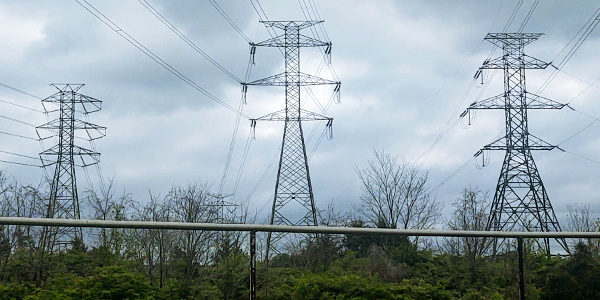FERC on Friday denied rehearing of a 2019 order that directed MISO, PJM and SPP to shine more light on how they perform their affected-system studies (EL18-26).
The commission last September told the three RTOs that their joint operating agreements don’t provide enough clarity on how they handle the study of generator interconnections along their seams. (See Affected-system Rules Unclear, FERC Says.) It ordered them to update their JOAs and tariffs to make the queue priority process more transparent.
A handful of renewable generation developers in the RTOs called for rehearing on the grounds that FERC’s order didn’t go far enough to unify their affected-system studies. Invenergy argued that FERC should order all RTOs to use energy resource interconnection service (ERIS) — as opposed to network resource interconnection service (NRIS) — as the modeling standard to determine affected-system impacts.
But FERC noted that its September order “did not make a final determination as to the justness and reasonableness of the use of either an ERIS or NRIS modeling standard to study impacts as an affected system by any RTO.”
“Consequently, we dismiss as premature Invenergy’s rehearing arguments as to the RTOs’ use of an ERIS or NRIS modeling standard to study impacts as an affected system,” the commission said. It said it will individually evaluate MISO, PJM and SPP’s modeling standards for affected-system studies in the RTOs’ compliance filings.
FERC also declined to adopt a specific timeline for RTOs to make their affected-system study modeling available. The commission said the deadline issue was already addressed in FERC Order 845, which requires transmission providers to maintain network models, “including all underlying assumptions,” on either password-protected sites or their Open Access Same-time Information System sites, FERC said.
Multiple renewable developers questioned why FERC directed SPP and MISO to revise their JOA to include timelines for the sharing of affected-system information but didn’t require the same timeline alterations to MISO and PJM’s.
FERC said the end goal of the directive to MISO and SPP was to heighten transparency, something that was already written into the MISO-PJM JOA.
“The commission found that the MISO-PJM JOA met the goal of transparency because it detailed the process, including target dates for information exchange, and consequently did not warrant further modification,” FERC said, adding that the generation developers knew that the RTOs already had information-sharing timelines in place but were seeking changes out of scope to speed up the interconnection process.
FERC similarly didn’t require MISO and PJM to add a description of how they study impacts on affected systems, as it prescribed for the MISO-SPP JOA.
The same developers asked FERC to require the same descriptor in the MISO-PJM JOA, but FERC said it continues to find that JOA “includes sufficient detail on how each RTO studies affected-system impacts.”
The developers took a final shot at rehearing when they argued the commission should have required PJM to include affected-system study results with interconnection study results, something that MISO and SPP already try to do.
The commission pointed out that MISO and SPP only include affected-system study results in respective interconnection studies “if they are available.” It said the attachment of results in all interconnection studies would take a monumental alignment effort from the three RTOs.
“We reiterate that in order for the RTOs to include affected-system RTO information with their own study results, the cycles would essentially have to be aligned, as the affected-system RTO information would have to be available at the time the RTO’s study results conclude,” FERC said. “There are significant differences between the processes and time frames used by the various RTOs, and we do not find that a realignment of these processes is necessary to ensure that interconnection customers have time to review affected-systems studies before making further financial commitments.”





